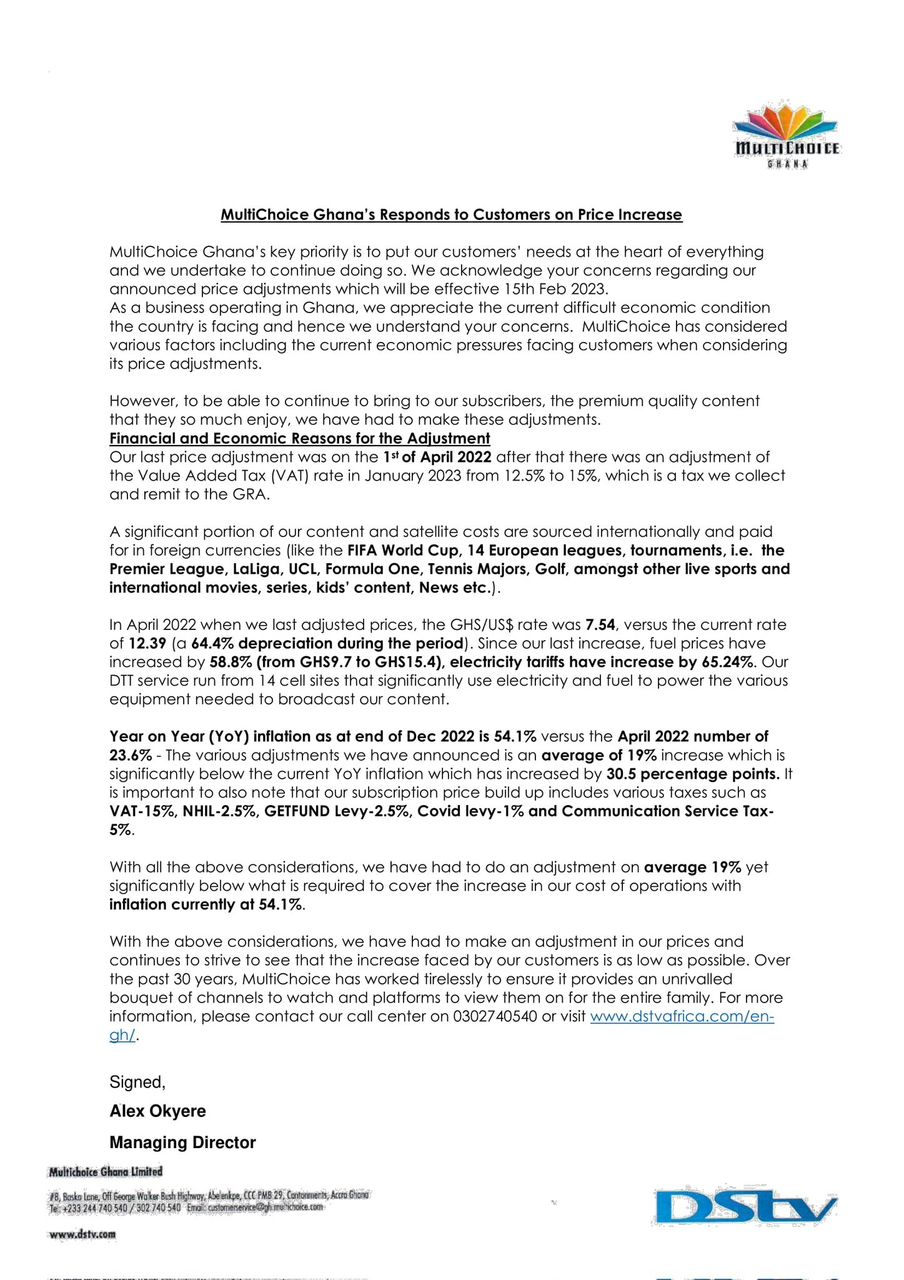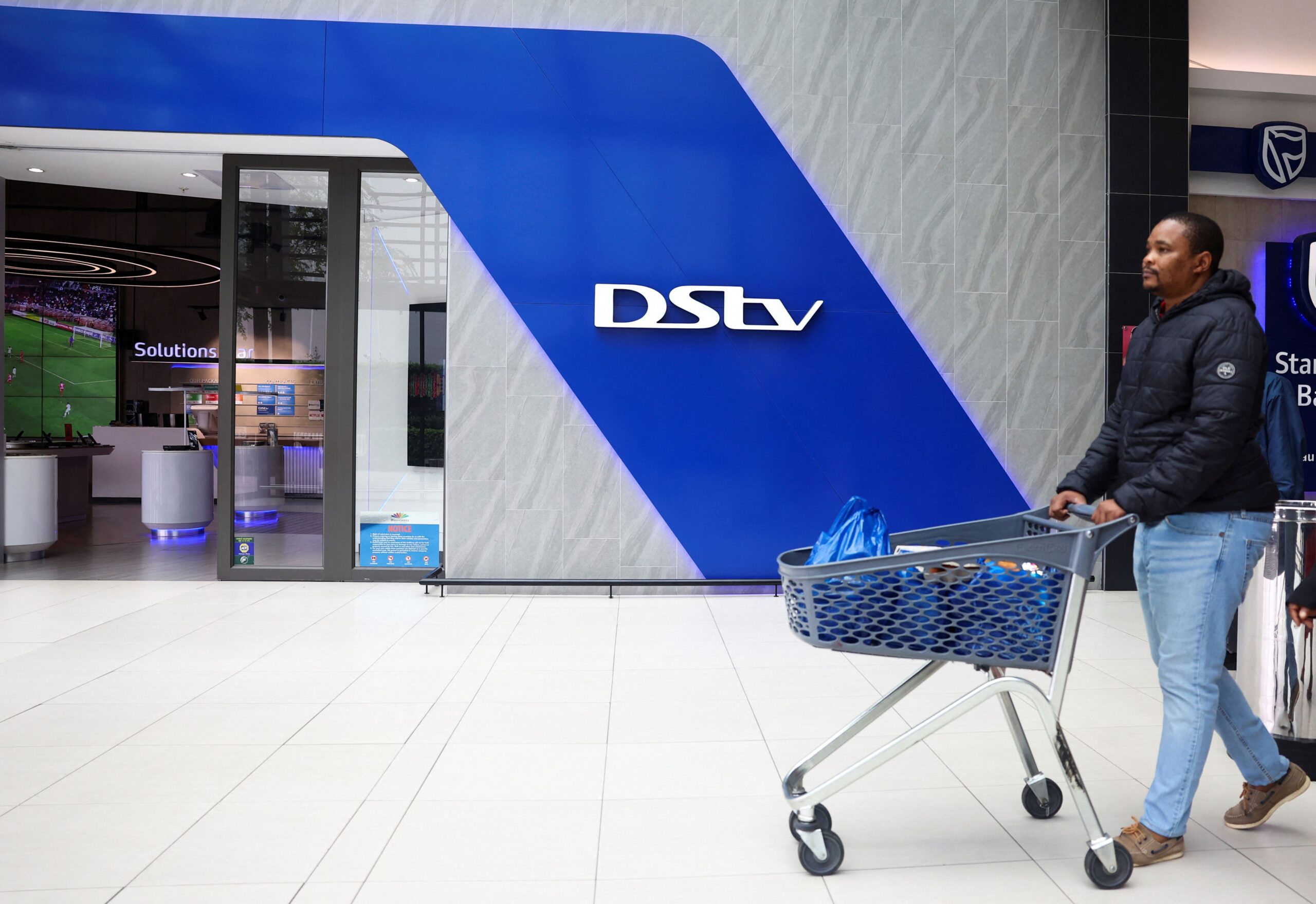Ghana is adopting a firm approach toward regulating its media and communication sectors by threatening to suspend the license of DStv, the leading pay-TV operator in the country, over its high subscription prices. This heightening tension revolves around the Ghanaian government’s demand that DStv cut its subscription fees by 30%, a reduction that MultiChoice Ghana—the local operator of DStv—has rejected, citing economic challenges and service quality concerns.
The dispute reached a critical point in early August 2025, when Ghana’s Minister of Communication, Digital Technology and Innovations, Samuel Nartey George, issued a clear ultimatum. He directed the National Communications Authority (NCA), the country’s telecom regulator, to suspend DStv’s broadcasting license if MultiChoice Ghana did not comply with the price reduction by August 7, 2025. The minister emphasized that this tough stance was necessary to protect Ghanaian consumers from what he described as years of unfair and excessively high pricing.
The government’s justification for the 30% cut draws heavily on Ghana’s improving economic indicators. Minister George noted the significant appreciation of the Ghanaian cedi against the US dollar—more than 40% in the first half of 2025 alone—and criticized DStv’s past reasoning that subscription price hikes were driven by the cedi’s massive depreciation of over 200% in the previous eight years. According to George, this argument no longer holds as the currency is now strengthening, yet prices remain disproportionately high compared to other African markets. For instance, the premium DStv package costs about $83 in Ghana, much higher than $29 in neighboring Nigeria and $39 in South Africa.
DStv and MultiChoice Ghana have resisted the government’s demands, arguing that a forced 30% price reduction would undermine business viability, jeopardize jobs, and potentially degrade service quality. MultiChoice emphasized that the economic environment, including operational costs and inflation, complicates the government’s expectation. They also proposed alternatives, such as freezing prices while halting revenue transfers abroad, but Minister George dismissed these alternatives as inadequate and illogical. He criticized MultiChoice for responding differently in Nigeria, where the company complied with a court order to freeze prices but maintaining their stance in Ghana.

Legally, the NCA has the authority to suspend licenses under the Electronic Communications Act, 2008 (Act 775), particularly if companies fail to comply materially with regulations or lawful directives. Nonetheless, any suspension must follow due process, including a 30-day written notice and an opportunity for the licensee to respond. The pricing dispute likely falls under regulations relating to tariff setting, where the regulator may intervene to address market dominance or anti-competitive pricing.
This confrontation illustrates broader regulatory risks in African media and telecom sectors, where governments wrestle with balancing consumer protection and attracting foreign investment. Ghana’s aggressive enforcement reflects growing frustration with foreign operators perceived to exploit market conditions. However, regulatory uncertainty from abrupt license threats can unsettle investors and market dynamics.
In summary,
Ghana’s government, led by Communications Minister Samuel Nartey George, is taking a decidedly tough stance by threatening to suspend DStv’s license if it does not slash subscription prices by 30% by August 7, 2025. The government’s position highlights its commitment to safeguarding consumer interests amid improving economic conditions, challenging DStv’s pricing strategy and insistence on maintaining current rates despite public dissatisfaction. This case underscores the complex dynamics between regulatory authority, economic realities, and corporate strategy in Ghana’s media and communication landscape.

